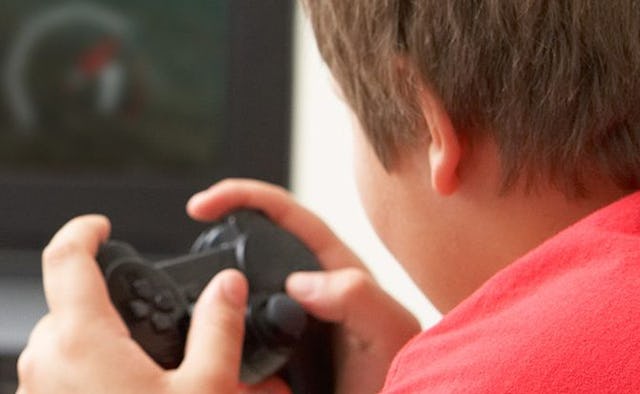Why I've Stopped Nagging My Son About Homework

Lately, I’ve been thinking about my 9th grade son’s homework. He’s that boy so many of us know: bright, analytical, motivated when he wants to be, lackadaisical when he doesn’t. His grades are fine—he’s even pulling a couple A’s—but his organizational habits are the stuff of entire books on the subject. His habits aren’t pretty. But they are pretty normal.
This morning I ran across an Atlantic piece in which the author calls for parents to be more hands-on with high school homework in a bid to teach concrete organizational skills to teens. Exactly at the time when teachers say parents should take a step back. The author suggests getting more hands-on because chances are good your child’s school won’t be teaching the necessary executive skills, and teens need to be taught so they can be successful in high school, college and beyond.
The article struck a chord. I have the same worry that kids (read: boys) won’t learn these skills because as far as I can tell no teacher or counselor is stepping forward to teach them, although they know the disorganized kids when they see them. As one of my son’s teachers wrote me in an email: “Super bright and insightful but poor student skills.” Yep. So, what about that? I haven’t asked the teacher if he’s helping my son, so I don’t know the answer.
I agree with the author that many kids don’t have the requisite skills for success—it’s a developmental process, after all. Like her, I ask my son whether he has homework and how much, and I periodically check to ensure Facebook isn’t the only thing on the computer screen. My son would tell you I nag.
But here’s where I depart from the author: I think the best messages come from people besides parents. I agree with teachers that parents should step back, and I want to do it more. Not so much I don’t know what’s going on, and certainly not if tanking grades indicate a bigger problem like depression or drug use. But in general, I believe it’s up to kids to figure out their homework lives, and if that means getting a low grade, oh well. Kids need space to learn what doesn’t work while it’s still free.
In case you’re wondering, we are a household with college expectations, so grades resonate. My son knows they’re important. My husband and I are both college educated with advanced degrees, and our daughter, a senior, has been talking college nonstop for four years. She has academic plans she’s bound to achieve, and her organizational skills are something to behold.
But I don’t make her brother write his assignments on a whiteboard the way she does with hers. I don’t take away privileges if homework isn’t done. Admittedly, we aren’t looking at D’s on his report card, so I can’t speak to that. I don’t discuss his online portal grades with him anymore, and I’ve stopped haranguing about missing assignments. His dad and I do offer to quiz him for tests, but if he doesn’t accept (he doesn’t), that’s his choice—I’ve stopped being a homework cop. When he requested a planner at the beginning of the second semester—because “you know, it might help if I wrote my assignments down”—you can bet I beat a fast track to the office store, but I haven’t checked to see if he’s actually using it.
Here’s what I believe: I think we need to stop panicking about mediocre grades due to low executive skills (the boy “achievement gap” is a different topic). New brain research tells us the adolescent brain isn’t fully formed until the late 20s or early 30s. Teen brains are scattered, especially ninth-grade boy brains, exactly when parents’ anxiety ramps up because grades count. But though kids are scattered, we should still put the responsibility of homework on their shoulders (if that means they ask us for help, great; if not, OK). They’re old enough at this point to take personal responsibility for their choices.
Not hovering, however, requires us to take the long view. I don’t believe poor grades in high school have the long-term consequences people say they do, argue what you will. Sure, low high school grades mean the kid won’t get into an elite college or even a private college—maybe not even, gasp, a state college right now. So be it.
Will I stop thinking about whether my son is getting his homework done? Likely not. And knowing my ways, I’ll probably drop study strategies like bread crumbs in case he cares to follow. But I want him to do his homework because he knows it’s the key to his future, not because it earns him controllers to the PlayStation. I won’t be hauling out the whiteboard unless he asks me to.
This article was originally published on